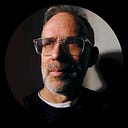While the author points out some inconsistencies in Kirk's arguments, the essay overlooks significant issues within academia.
For example, it is shocking how ideologically driven scholarship, often lacking rigorous peer review, can get published in respected journals. This isn't just about indoctrination but a breakdown in academic standards.
Kirk's broad generalizations may be flawed, but his concerns about ideological homogeneity aren't baseless. Many universities, particularly in the humanities and social sciences, lean significantly left, which can stifle dissenting viewpoints and create an intellectual echo chamber.
The author rightly argues for exposing students to diverse perspectives as critical for true education. However, many academic institutions discourage this diversity. Students and faculty expressing viewpoints outside the predominant framework often face social and professional repercussions.
Despite these issues, higher education's value is undeniable. The skills developed through college—critical thinking, research, and analytical abilities—are invaluable. The challenge is ensuring these skills are taught in an environment that embraces intellectual diversity and academic rigor.
Both Kirk and the author could benefit from focusing on solutions rather than polarizing rhetoric. Improving transparency in academic publishing, fostering environments that encourage diverse viewpoints, and maintaining high academic standards are essential steps toward reforming higher education.
While Kirk's approach may be overly simplistic, the issues he raises about ideological bias and academic corruption deserve consideration. The author's critique is valid but should also acknowledge the real problems within academia that require thoughtful solutions.
